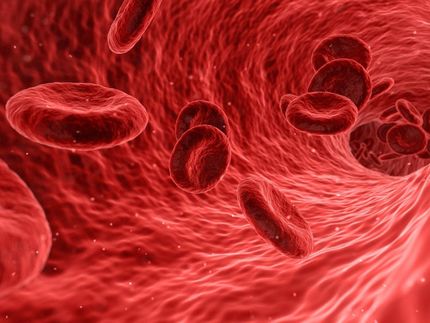Immune responses to flu vaccine are diminished in lupus patients
Patients with the autoimmune disease systemic lupus erythematosus (SLE) have an increased risk of infection, due to both disturbances in their immune responses and treatment with immunosuppressive drugs. Because morbidity and mortality related to influenza are increased in immunocompromised patients, it is recommended that patients with SLE get annual flu shots, which are safe and do not increase disease activity. Both antibody and cell-mediated responses are involved in the immune response to influenza; in SLE, antibody responses to the vaccine are diminished, but it is not known if the same effect is seen in cell-mediated responses. A new study was the first to examine cell-mediated responses in SLE patients prior to and following influenza vaccination. The study was published in the August issue of arthritis & Rheumatism.
Led by Albert Holvast, of the University of Groningen in The Netherlands, the study involved 54 patients with SLE and 54 healthy controls who received subunit flu vaccine, out of a total of 78 patients in each group. Patients were randomized 2:1 to receive a flu vaccine or serve as a nonvaccinated control. Patients and controls were followed up at 28 days and three to four months following vaccination, at which time blood was drawn.
Vaccination induces an influenza virus-specific immune response which is generally documented as the generation of antibodies specifically reacting with the virus. However, the main defense against the virus is exerted by specific immune cells, in particular CD4+ and CD8+ T-cells which are part of the immune response induced by vaccination. The level of this so-called cellular immune response has until now not been documented in patients with SLE, but is crucial for the effect of vaccination.
The results showed that cell-mediated responses (both CD4+ and CD8+ T-cells) to influenza were lower in SLE patients prior to vaccination. Following vaccination, cell-mediated responses remained lower in SLE patients than controls. CD4+ and CD8+ T-cell responses to staphylococcal enterotoxin B (SEB), which was used as a positive control, were normal in patients with SLE, indicating that their decreased cell-mediated response to the flu vaccine was not attributable to a decreased responsiveness of T cells in general. However, the use of the medications prednisone and/or azathioprine was associated with lower cell-mediated responses following vaccination.
Previous studies have shown that antibody production following flu vaccination is lower in SLE patients than in the general population and the current study confirmed these results. The authors evaluated the relationships between antibody and cell-mediated responses because CD4+ T-cell help is necessary for antibody responses. While they did not find a correlation between CD4+ T-cell and antibody responses using flow cytometry, they did find a modest correlation using ELISpot assay, a more sensitive technique. They also found that flu vaccination did not induce disease activity over three to four months.
Although the sample size in this study was not large, the authors conclude that the diminished cell-mediated immune and antibody responses to flu vaccination in SLE patients are representative of what occurs in daily practice.
Most read news
Topics
Organizations
Other news from the department science

Get the life science industry in your inbox
By submitting this form you agree that LUMITOS AG will send you the newsletter(s) selected above by email. Your data will not be passed on to third parties. Your data will be stored and processed in accordance with our data protection regulations. LUMITOS may contact you by email for the purpose of advertising or market and opinion surveys. You can revoke your consent at any time without giving reasons to LUMITOS AG, Ernst-Augustin-Str. 2, 12489 Berlin, Germany or by e-mail at revoke@lumitos.com with effect for the future. In addition, each email contains a link to unsubscribe from the corresponding newsletter.
Most read news
More news from our other portals
See the theme worlds for related content
Topic world Antibodies
Antibodies are specialized molecules of our immune system that can specifically recognize and neutralize pathogens or foreign substances. Antibody research in biotech and pharma has recognized this natural defense potential and is working intensively to make it therapeutically useful. From monoclonal antibodies used against cancer or autoimmune diseases to antibody-drug conjugates that specifically transport drugs to disease cells - the possibilities are enormous

Topic world Antibodies
Antibodies are specialized molecules of our immune system that can specifically recognize and neutralize pathogens or foreign substances. Antibody research in biotech and pharma has recognized this natural defense potential and is working intensively to make it therapeutically useful. From monoclonal antibodies used against cancer or autoimmune diseases to antibody-drug conjugates that specifically transport drugs to disease cells - the possibilities are enormous
Topic World Cell Analysis
Cell analyse advanced method allows us to explore and understand cells in their many facets. From single cell analysis to flow cytometry and imaging technology, cell analysis provides us with valuable insights into the structure, function and interaction of cells. Whether in medicine, biological research or pharmacology, cell analysis is revolutionizing our understanding of disease, development and treatment options.

Topic World Cell Analysis
Cell analyse advanced method allows us to explore and understand cells in their many facets. From single cell analysis to flow cytometry and imaging technology, cell analysis provides us with valuable insights into the structure, function and interaction of cells. Whether in medicine, biological research or pharmacology, cell analysis is revolutionizing our understanding of disease, development and treatment options.





















































